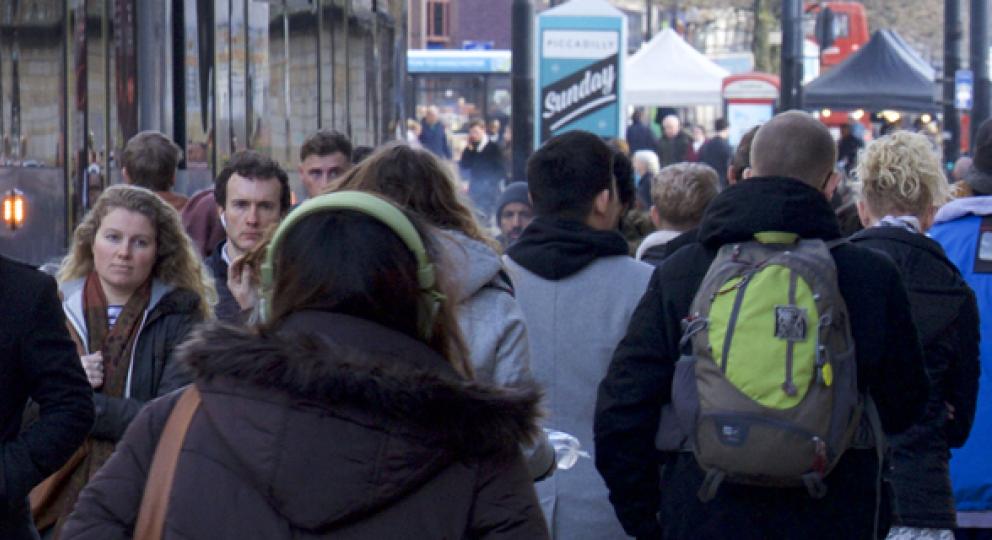10 years of the Commission: achievements and highlights
10 years of the Commission: achievements and highlights
We take a look back at some of the Commission's groundbreaking legal cases and major achievements over the past 10 years.
Our major achievements
Our major achievements
Since it was formed, the Commission has improved the lives of millions of people in Britain through its ground-breaking work. Below is a summary of our major achievements over the last three years.
Legal work
Legal work
- we have taken more than 80 legal actions, with a successful outcome in over two-thirds of them
- we increased protection for more than 500,000 older and disabled people receiving care in their homes by helping to close a legal loophole
- we successfully intervened in a legal case against the Government that will potentially mean that thousands of unpaid carers looking after disabled family members will no longer see deterioration in their living conditions due to a cap on benefits
- we also successfully intervened in a case that clarified that vulnerable people in hospital have the right to be consulted about any proposal to place a ‘Do Not Resuscitate Notice’ in their notes
- we assisted a landmark legal case on sexual orientation discrimination. This ruled that owners of bed and breakfast and hotel accommodation are not allowed to refuse to accept bookings made by gay couples
- we produced a briefing, welcomed by Councils, that set out the legal position in Wales in relation to disparaging comments being made by Councillors about Gypsy Travellers and their sites
Inquiries and investigations
Inquiries and investigations
- we carried out the first major inquiry into the non-natural deaths of adults with mental health conditions detained in prisons, hospitals and police stations. Our recommendations were welcomed by the Health Minister and a cross-Government response set out action for improvement. The Home Secretary announced an end to the detention of individuals suffering poor mental health in police cells.
- as a result of a Commission inquiry conducted in Scotland, and subsequent lobbying, consultations and evidence submission, the Human Trafficking and Exploitation (Scotland) Act passed into law in 2015. This gives legal protection to victims of trafficking and allows traffickers to be prosecuted.
- our inquiry into Disability Related Harassment in 2012 was welcomed by government and the cross-government response included a commitment to taking forward the our recommendations. Since then, governments have:
- amended the Criminal Justice Act 2003, so that murders motivated by hatred or hostility towards disabled or transgender victims have a sentencing starting point of 30 years
- established the Criminal Justice Disability Group that reports to Scotland’s Senior Law Officer and has published a Framework for Action to tackle hate crimes and incidents in Wales
Research and analysis
Research and analysis
- we carried out the most comprehensive review of progress on equality and human rights in Britain – 'Is Britain Fairer?' This will shape the agendas of Governments and public bodies, including the Women and Equalities Select Committee, and NHS England
- the challenges identified in our Is Wales Fairer? report have directly influenced the priorities set by the Welsh Government in its Equality Objectives for 2016 to 2020
- we conducted the largest ever survey on the experiences of pregnant women in the workplace, which revealed that up to 54,000 pregnant women and new mothers may be being forced out of their jobs each year. The governments of England, Scotland and Wales are currently considering our recommendations to tackle discrimination on the grounds of pregnancy and maternity
- we published research showing significant gender segregation in and low levels of access for ethnic minorities and disabled people to Modern Apprenticeships in Scotland. As a result, the Commission for the Development of Scotland's Young Workforce has called for targets to address this. Skills Development Scotland have already reported in this area
Partnership work
Partnership work
- we worked with police forces and supported training on the excessive and disproportionate use of stop and search against young ethnic minority men. This led the Home Secretary to change police guidelines and resulted in a subsequent 40 per cent fall in stops, from 904,000 in 2013 to 2014, to 541,000 in 2014 to 2015
- we have improved working conditions for tens of thousands of low-paid and agency workers through our engagement with the office cleaning and meat-processing sectors
- in Wales, we worked with partners to increase the introduction of workplace policies on domestic abuse and mental health. This led to Sony introducing policies for their workforce. The Royal College of Nursing based its mental health policy on our guidance, supporting its 420,000 members across various sectors in the UK
Monitoring human rights
Monitoring human rights
As Britain's National Equality Body and 'A' status UN National Human Rights Institution, the Commission is recognised by government, the public and private sectors as a trusted, authoritative expert on equality and human rights. Over the last five years:
- we have produced nine formal Treaty Monitoring submissions containing 350 recommendations to improve UK compliance with international human rights obligations. 70 per cent of these have been reflected back to government by the UN
- we have provided expert advice to the UK and Scottish Parliaments and Welsh Assembly through 30 parliamentary briefings containing more than 200 recommendations to improve legislation protecting human rights and equality
Last updated: 20 Apr 2021




